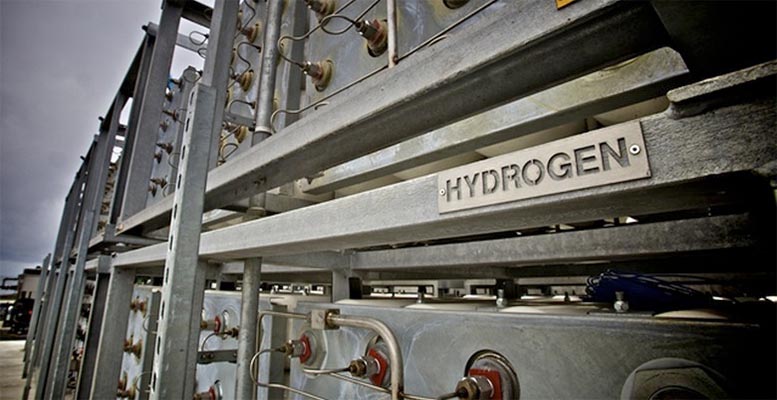Repsol, Enagas, Talgo, Alsa, Bosch, Scania… 22 large companies and 11 entities (associations and universities) have formed a consortium to promote green hydrogen from Spain, with the support of European funds and investments of 3,230 million euros.
The Secretary of State for Energy, Sara Aagesen, was present at the presentation of the consortium, “Shyne”, and announced that the first 400 million of a total of 1.555 billion euros in European funds will soon be available for subsidies for projects related to green hydrogen: “Green hydrogen is going to change the paradigm of the new energy model and for this reason our doors will always be open to you”, said the Secretary of State for Energy.
In this sense, she pointed out that Spain is a country that is very vulnerable to climate change and “we have to anticipate and maximise opportunities. Green hydrogen is a country project for this government and we should be there from the start. We have to patent in Spain, manufacture our own equipment and be independent not only in terms of energy but also in terms of technology,” said Aagesen.
As part of the energy transition and decarbonisation process, Spain’s goal is to reach 4,000 megawatts of energy from green hydrogen by 2030. For this reason, the Secretary of State for Energy thanked this group of companies for their initiative: “without them we would not be able to achieve what we are trying to do”, she stressed.
Repsol’s CEO, Josu Jon Imaz, said that this project began some time ago, when Repsol and other companies such as Talgo, Bosch, Scania and Alsa began to look for alternatives to the new decarbonisation policy. Imaz said that “the companies that make up the consortium are united in this objective of working together on projects, contributing specific ideas and being able to identify opportunities” and stressed that they must also work with France, Germany, Italy and the rest of the European countries to give a cross-border dimension to their projects. “One of Shyne’s tasks is to create corridors,” he said.
Aware of the regulatory ups and downs that characterise the work of this government, all the companies participating in the presentation insisted on reminding the Secretary of State for Energy that “we need regulation and regulatory stability to make what we are proposing and investing in this technology viable”. The CEO of Enagás, Marcelino Oreja, also insisted that the government should speed up the procedures for the projects. “We not only need funds, but also administrative assistance to ensure that we arrive on time. Collaboration is essential”, he stressed.





